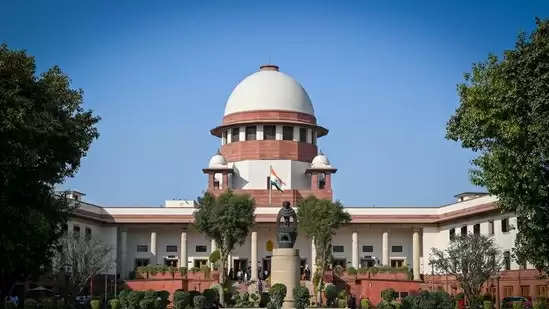SC Issues Landmark Guidelines on Death Penalty Executions and Mercy Petitions to Prevent Delay
The Supreme Court of India on Monday 9th Decemeber 2024 issued significant guidelines aimed at preventing unnecessary delays in the execution of death sentences and the processing of mercy petitions. The ruling, made in the case of State of Maharashtra & Ors vs Pradeep Yashwant and Anr (Criminal Appeal No. 2831 of 2023), emphasized the importance of ensuring timely action to prevent prolonged uncertainty for death row convicts.
The judgment, delivered by a bench comprising Justices Abhay S. Oka, Ahsanuddin Amanullah, and Augustine George Masih, underscored the psychological and physical distress caused by delays in carrying out the death sentence. The Court held that such delays violate the convict's right under Article 21 of the Indian Constitution, which guarantees the right to life and personal liberty.
The case centered around the tragic 2007 gang rape and murder of a 22-year-old Pune BPO employee, where the Bombay High Court had commuted the death sentences of two convicts, Pradeep Kokade and Purshottam Borate, to life imprisonment in 2019. The Supreme Court dismissed the State of Maharashtra's appeals challenging the commutation and focused instead on the broader issue of the delays in the execution of death sentences.
Key conclusions and directions in the judgment include:
1. Inordinate Delay in Execution: The Court held that undue and unexplained delays in executing a death sentence could entitle the convict to seek relief under Article 32 of the Constitution. The Court also stated that such delays could lead to the commutation of the death sentence to life imprisonment, taking into account the agony caused by prolonged uncertainty.
2. Mercy Petitions: The Court recognized the importance of timely processing of mercy petitions. It issued specific directions to all States and Union Territories to establish dedicated cells within the Home or Prison Departments for processing mercy petitions efficiently and within a stipulated timeframe. The dedicated cell must be headed by a designated officer and supported by officials from the Law and Judiciary Department.
3. Duty of Sessions Courts: The Court mandated that the Sessions Court should act swiftly upon receiving confirmation of a death sentence. This includes issuing a notice to the Public Prosecutor and investigating agencies to ascertain the status of any pending appeals, review petitions, or mercy petitions. The Court also emphasized periodic monitoring of these proceedings to ensure that execution warrants are issued without unnecessary delays once all legal avenues are exhausted.
4. Specific Guidelines for Mercy Petitions: The Court ordered that the information required for processing mercy petitions, including the convict's criminal history, family background, economic condition, and the details of their imprisonment, should be gathered and sent promptly to the dedicated cell. The mercy petitions must be forwarded without delay to the offices of the President or Governor, depending on the jurisdiction.
5. Implementing the Judgment: The Supreme Court directed the Home Secretaries of State Governments and Union Territories to implement these guidelines within three months. It also ordered that the Registry of the Court send copies of the judgment to the relevant authorities for compliance and ensure that all Sessions Courts receive copies for proper execution.
This ruling highlights the Court's commitment to ensuring that justice is delivered in a timely manner, particularly in cases involving death penalty convictions. The guidelines aim to eliminate the undue psychological toll that delays impose on death row inmates and reinforce the need for strict adherence to legal timelines.
Legal experts and activists have welcomed the judgment as a step toward upholding human dignity and constitutional rights, while urging the government to implement the directions expeditiously. With this ruling, the Supreme Court has firmly placed the onus on the authorities to ensure that the death penalty process is carried out efficiently and compassionately, safeguarding the rights of the convicts while upholding the rule of law.
This decision also serves as a reminder to the executive to take timely action in cases where mercy petitions are involved, ensuring that the system functions without the delays that often lead to prolonged suffering for the accused.
The next review for compliance of the directives will take place on March 17, 2025.
To join us on Facebook Click Here and Subscribe to UdaipurTimes Broadcast channels on GoogleNews | Telegram | Signal



